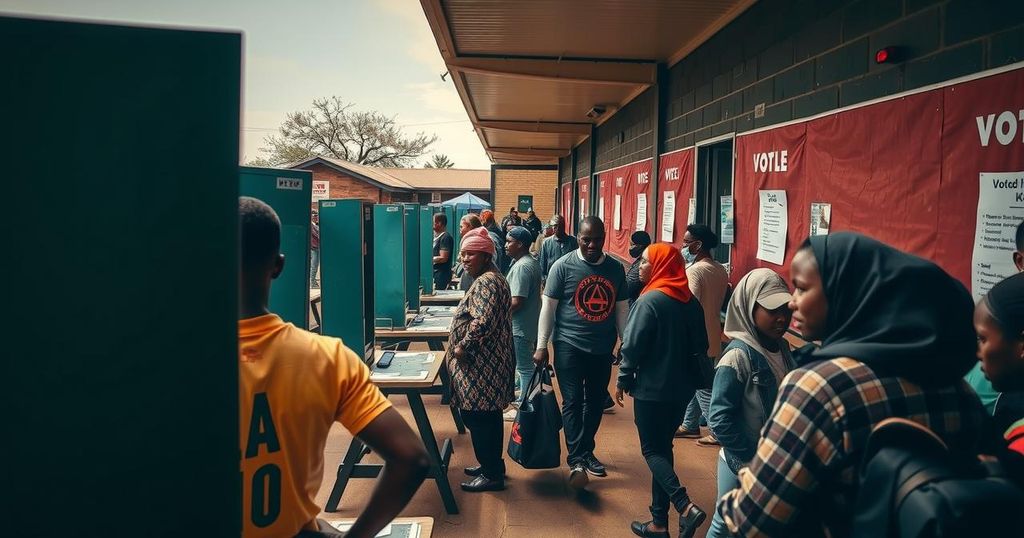Namibia’s Election Voting Extended Amid Technical Issues and Opposition Claims
Namibia has extended its election voting period amid ballot shortages, provoking opposition claims of fraud. Long lines at polling stations reflect logistical challenges, with many citizens unable to vote. The ruling SWAPO party seeks to retain control during a time of economic dissatisfaction, particularly among young voters. The decision highlights tensions comparable to electoral unrest in neighboring Mozambique.
Namibia’s electoral body has extended the voting period for the presidential and parliamentary elections from Wednesday to Saturday due to ballot paper shortages, a decision that has provoked criticism from the main opposition party, the Independent Patriots for Change (IPC), which claims the extension constitutes electoral fraud. As the vice president and ruling party candidate, Netumbo Nandi-Ndaitwah, seeks to become the nation’s first female president, the move has raised concerns about the integrity of the electoral process amidst logistical challenges that prevented many citizens from casting their ballots. Long lines remained evident at polling stations even on Friday, with voters expressing frustration at the delay, and isolated rural areas have yet to receive essential voting materials, casting doubt on the electoral commission’s assurances of forthcoming deliveries.
Despite facing a youthful electorate disillusioned by high unemployment and economic challenges in a nation rich in minerals, SWAPO, the ruling party since Namibia’s independence, aims to maintain its long-standing political dominance. International attention to Namibia’s elections coincides with unrest in regional neighbor Mozambique, highlighting a continent-wide trend of increasing dissatisfaction with established parties amongst a younger populace seeking change.
Namibia, a former German colony that gained independence from South Africa in 1990, is preparing for critical elections that will determine its next president and parliamentary makeup. The country has a predominantly young population facing significant economic challenges, including high unemployment rates, despite being classified as an upper middle income nation by the World Bank. The ruling SWAPO party, in power since independence, is seeking to retain control amidst growing calls for change. Past elections are generally viewed as credible, but recent issues with ballot paper shortages and opposition claims of fraud have raised concerns regarding the electoral process’s integrity.
In conclusion, Namibia’s extension of its election voting period amid logistical issues has initiated significant opposition outcry over claims of fraud. As the nation approaches a critical electoral decision, the dissatisfaction among the electorate and the implications of the extended voting period highlight the complexities faced by the country’s political landscape. The outcome of these elections may not only influence internal dynamics but also reflect broader regional sentiments towards governance and economic hardship.
Original Source: apnews.com




Post Comment